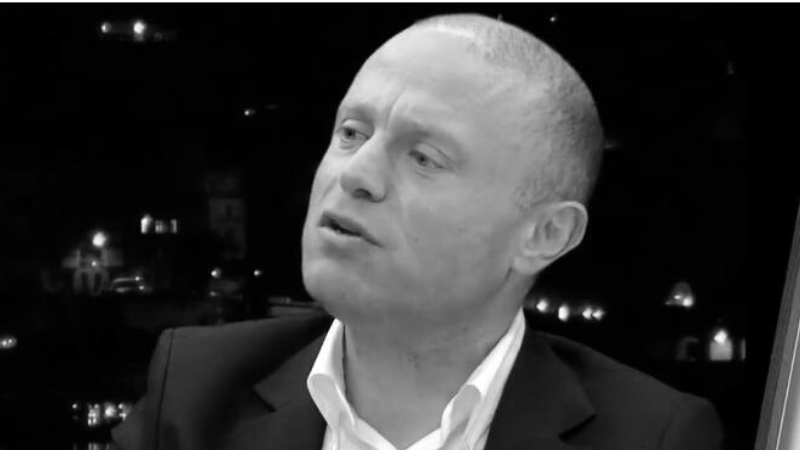Disgraced former prime minister Joseph Muscat has defended his government’s disastrous foreign labour policy in comments to Al Jazeera, skirting around the reasons why the country faces a labour shortage and the unfair treatment of refugees and asylum seekers.
The article questioned how Malta can welcome and encourage foreign workers to boost its economy and make up for labour shortages across the board while repelling refugees in what it calls “double standards”.
Muscat told Al Jazeera that Malta’s geographic location has always made the country attractive to migrants but that labour shortages in sectors such as service and healthcare, combined with an ageing population, have caused problems.
“So introducing a system of bringing migrants in such a structured manner of the country was integral,” he said.
However, it has been far from structured and has resulted in infrastructural issues, pollution, soaring rent prices, and mass exploitation of third-country workers due to the proliferation of shady ‘employment’ agencies.
Not only that, but the labour shortage was, in fact, caused by Muscat’s government.
Bloated public sector
Malta’s public sector currently employs over 51,000 people, around 10% of the population. This has increased by around 10,000 people since the Labour Party, with Muscat at its helm, won the general elections in 2013.
In Gozo alone, some 6,000 people are employed by the government, equivalent to over 35% of the population. This leaves dwindling numbers of skilled and unskilled workers to partake in other sectors like education, tourism, health, care and construction.
This excludes hundreds more who work privately but are engaged with the government via direct orders distributed by the Gozo Ministry.
It also excludes around 1,200 ‘jobless’ individuals participating in the Community Work Scheme with the General Workers Union.
Influx of TCNs
Also since 2013, the number of third-country nationals (TCNs) issued work permits in Malta has risen significantly. When Muscat took power, around 6000 such licenses were issued each year. By 2017, this had surpassed 10,000 a year; in 2022, it reached an unprecedented 37,851.
Some 100,000 of Malta’s workforce, around one-third, are now estimated to be foreign, mainly TCNs.
As the numbers began to rise, scores of companies – mainly one-person shows, popped up, taking advantage of the artificially increased demand for labour. They started advertising services to TCNs, offering jobs and assistance, and getting work and residence permits in return for a fee and commission.
These employment agencies issue without any regulatory oversight, and stories of abuse and exploitation, including non-adherence to labour laws, phantom jobs, excessive fees, and people being forced to work in sub-standard conditions, are rife.
Neil Falzon, director of Aditus, told Al Jazeera that foreign workers who use these agencies “do not enjoy much protection from the government”.
“The level of rights that they have is extremely low,” he said, “so we are really talking about modern slavery here.”
Meanwhile, the government has yet to regulate the sector, despite industry and civil society calls to do so. Abela claims rules are being drafted and will come into force next year, but not everyone is convinced.
“It’s great that the government has acknowledged that there is a problem, but after big announcements, implementation of rules is slow,” Falzon told Al Jazeera.
“In many cases, the battle is less against the government and more against the private agencies who are employing and exploiting migrants. So we’re trying to push the government to have more stringent legislation to ensure better rights for contracted migrants,” he added.
Stemming the flow
In 2014, Muscat said he aimed to turn Malta into the “next Dubai” by mirroring Dubai’s approach to bringing in migrant workers from Southeast Asia. Over the years, the government has claimed it needs more foreign workers to sustain Malta’s economic growth.
In June 2023, Finance Minister Clyde Caruana said Malta’s population should be 800,000 by 2040 to maintain its economic trajectory.
Then, the prime minister said he would reduce the country’s reliance on foreign workers through reforms. As of 1 January 2024, non-EU nationals must work for a Malta-registered company with an annual gross salary of at least €25,000 and have adequate qualifications or experience for the position.
In addition, those wanting to work in tourism will have to pay nearly €600 for a ‘skills card’, demonstrating they have the necessary attributes to work in the sector.
Meanwhile, expat groups on Facebook are awash with posts and comments from TCNs, seen by The Shift, who are struggling to navigate the system or encountering problems with their current jobs or new applications.
Double standards
The Al Jazeera article also highlights the discrepancy between Malta’s ‘open arms’ policy to third-country workers under the guise of a need to fill positions and boost the economy while simultaneously pushing back refugees, often illegally.
As of 2022, Malta was home to just over 11,000 asylum seekers. In the same year, according to UNHCR, around 990 asylum applications were received against an approval rate of around 1%.
While it does accept some of those fleeing persecution and war, it has also been accused of involvement in ignoring distress calls at sea, denying assistance, and illegally pushing back boats full of migrants to Libya, where they face torture, violence, and arbitrary detention.
Over the years, the authorities have been called out by local and international NGOs, members of the European Parliament, and human rights groups for collaboration with the Libyan Coastguard in pushing back migrants, not upholding its obligations under international maritime law, and wilfully ignoring those in distress.













jaqq ta bniedem. korrott, facciol u halliel ta’ flus il-haddiem onest.